
-
 US envoy to visit Moscow as US pushes for ceasefire
US envoy to visit Moscow as US pushes for ceasefire
-
At least 24 killed in Kashmir attack on tourists: Indian police source

-
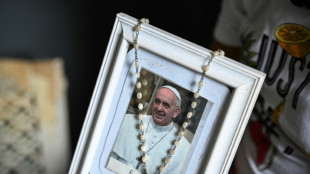 Philippine typhoon victims remember day Pope Francis brought hope
Philippine typhoon victims remember day Pope Francis brought hope
-
IMF slashes global growth outlook on impact of Trump tariffs
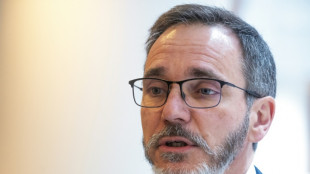
-
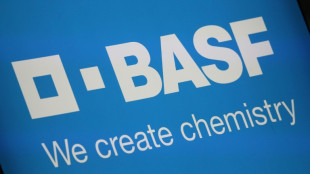 BASF exits Xinjiang ventures after Uyghur abuse reports
BASF exits Xinjiang ventures after Uyghur abuse reports
-
Nordics, Lithuania plan joint purchase of combat vehicles

-
 Gold hits record, stocks diverge as Trump fuels Fed fears
Gold hits record, stocks diverge as Trump fuels Fed fears
-
World could boost growth by reducing trade doubt: IMF chief economist
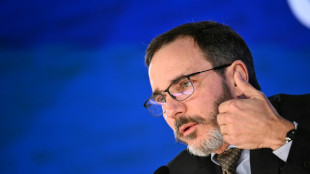
-
 IMF slashes global growth outlook on impact of US tariffs
IMF slashes global growth outlook on impact of US tariffs
-
IMF slashes China growth forecasts as trade war deepens
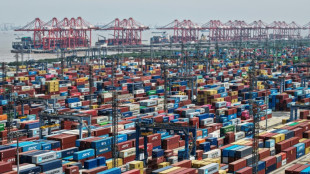
-
 Skipper Shanto leads Bangladesh fightback in Zimbabwe Test
Skipper Shanto leads Bangladesh fightback in Zimbabwe Test
-
US VP Vance says 'progress' in India trade talks

-
 Ex-England star Youngs to retire from rugby
Ex-England star Youngs to retire from rugby
-
Black Ferns star Woodman-Wickliffe returning for World Cup

-
 Kremlin warns against rushing Ukraine talks
Kremlin warns against rushing Ukraine talks
-
Mbappe aiming for Copa del Rey final return: Ancelotti

-
 US universities issue letter condemning Trump's 'political interference'
US universities issue letter condemning Trump's 'political interference'
-
Pope Francis's unfulfilled wish: declaring PNG's first saint

-
 Myanmar rebels prepare to hand key city back to junta, China says
Myanmar rebels prepare to hand key city back to junta, China says
-
Hamas team heads to Cairo for Gaza talks as Israel strikes kill 26
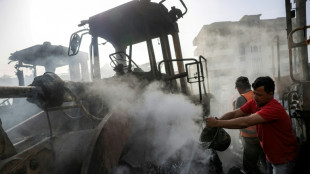
-
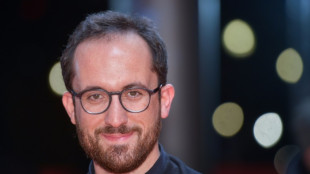 Pianist to perform London musical marathon
Pianist to perform London musical marathon
-
India's Bumrah, Mandhana win top Wisden cricket awards

-
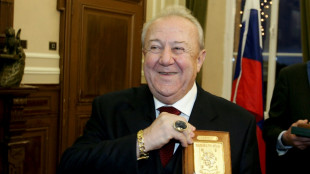 Zurab Tsereteli, whose monumental works won over Russian elites, dies aged 91
Zurab Tsereteli, whose monumental works won over Russian elites, dies aged 91
-
Roche says will invest $50 bn in US, as tariff war uncertainty swells
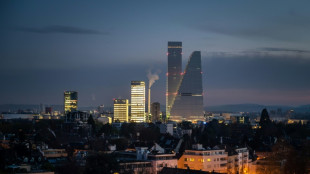
-
 Pope Francis's funeral set for Saturday, world leaders expected
Pope Francis's funeral set for Saturday, world leaders expected
-
US official asserts Trump's agenda in tariff-hit Southeast Asia
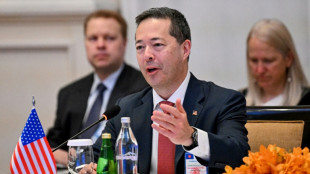
-
 World leaders set to attend Francis's funeral as cardinals gather
World leaders set to attend Francis's funeral as cardinals gather
-
Gold hits record, stocks mixed as Trump fuels Fed fears

-
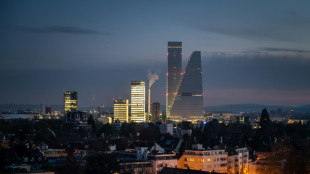 Roche says will invest $50 bn in US over next five years
Roche says will invest $50 bn in US over next five years
-
Fleeing Pakistan, Afghans rebuild from nothing
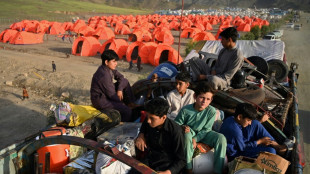
-
 US Supreme Court to hear case against LGBTQ books in schools
US Supreme Court to hear case against LGBTQ books in schools
-
Pistons snap NBA playoff skid, vintage Leonard leads Clippers

-
 Migrants mourn pope who fought for their rights
Migrants mourn pope who fought for their rights
-
Duplantis kicks off Diamond League amid Johnson-led changing landscape

-
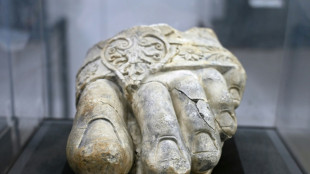 Taliban change tune towards Afghan heritage sites
Taliban change tune towards Afghan heritage sites
-
Kosovo's 'hidden Catholics' baptised as Pope Francis mourned

-
 Global warming is a security threat and armies must adapt: experts
Global warming is a security threat and armies must adapt: experts
-
Can Europe's richest family turn Paris into a city of football rivals?

-
 Climate campaigners praise a cool pope
Climate campaigners praise a cool pope
-
As world mourns, cardinals prepare pope's funeral
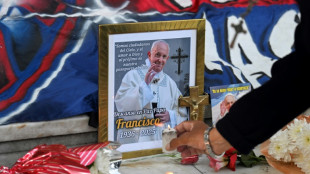
-
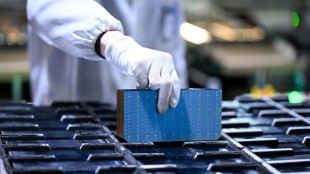 US to impose new duties on solar imports from Southeast Asia
US to impose new duties on solar imports from Southeast Asia
-
Draft NZ law seeks 'biological' definition of man, woman
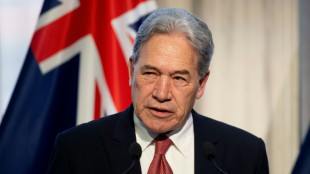
-
 Auto Shanghai to showcase electric competition at sector's new frontier
Auto Shanghai to showcase electric competition at sector's new frontier
-
Tentative tree planting 'decades overdue' in sweltering Athens

-
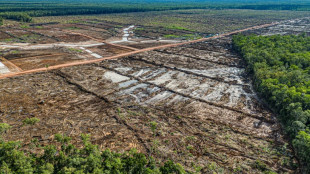 Indonesia food plan risks 'world's largest' deforestation
Indonesia food plan risks 'world's largest' deforestation
-
Gold hits record, stocks slip as Trump fuels Fed fears

-
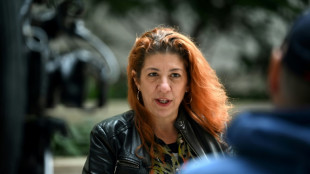 Trump helps enflame anti-LGBTQ feeling from Hungary to Romania
Trump helps enflame anti-LGBTQ feeling from Hungary to Romania
-
Woe is the pinata, a casualty of Trump trade war

-
 'Like orphans': Argentina mourns loss of papal son
'Like orphans': Argentina mourns loss of papal son
-
Trump tariffs torch chances of meeting with China's Xi


UAE to pump CO2 into rock as carbon capture debate rages
High in remote mountains in the oil-rich United Arab Emirates, a new plant will soon take atmospheric CO2 and pump it into rock -- part of controversial attempts to target planet-heating emissions without abandoning fossil fuels.
Using novel technology developed by Omani start-up 44.01, the solar-powered plant will suck carbon dioxide from the air, dissolve it in seawater and inject it deep underground, where it will mineralise over a period of months.
The new site on the Gulf of Oman is funded by state oil giant ADNOC, whose CEO Sultan Al Jaber is president of the UN's COP28 climate talks and chairman of Masdar, a renewable energies company.
The first CO2 injection is expected during COP28 which starts on Thursday in nearby Dubai, and where the debate over hydrocarbons will be a key battle between campaigners and the oil lobby.
"We believe this volume of rocks here in the UAE has the potential to store gigatons of CO2," ADNOC's chief technology officer Sophie Hildebrand told AFP during a tour of the facility this week.
"ADNOC has committed $15 billion to decarbonisation projects," she added, declining to say how much was spent on the Fujairah plant.
The UAE is the world's seventh largest oil producer, and plans to invest $150 billion by 2027 to expand its oil and gas production capacity.
Oil producers are throwing their weight behind carbon capture and storage (CCS) technology as a global warming solution despite criticism from climate experts who caution it is insufficient to tackle the crisis.
With little investment and few projects in operation around the world so far, the technology is currently nowhere near the scale needed to make a difference to global emissions.
- 'Unproven at scale' -
The UN's Intergovernmental Panel on Climate Change (IPCC) says the existing fossil fuel infrastructure -- without the use of carbon capture -- will push the world beyond the desired limit of 1.5 degrees Celsius above pre-industrial levels.
At the plant in Fujairah, one of the UAE's seven sheikhdoms, giant fans extract CO2 directly from the surrounding atmosphere.
Liquid CO2 is stored in vertical tanks, then converted into gas and dissolved in seawater that will be injected into a well that is one kilometre (0.6 mile) deep.
"It will be around eight months for the CO2 to be fully mineralised in the subsurface from the moment of injection," said Talal Hasan, CEO of 44.01.
The company, one of the 2022 winners of the UK's Earthshot Prize, has already carried out a test injection of around 1.2 tons of CO2 in Oman.
"This is a 10 to 15 times scale-up of the Oman pilot," said Hasan.
The "target rate is one ton of CO2 per day for an initial period of 10 days," he added.
When asked about cost, he said the aim is to make it competitive with more conventional carbon storage techniques.
"Our target is to eventually reach a cost of about $15 per ton of CO2 sequestered, not including the cost of the actual capture of the CO2," he said.
Jaber, the COP28 president and head of ADNOC, has said climate diplomacy should focus on phasing out oil and gas emissions -- not necessarily the fossil fuels themselves.
Climate campaigners have raised concerns about the influence of fossil fuel interests at COP28, where the benefits of carbon capture will be strongly pushed.
"When negotiating parties speak of phasing down unabated fossil fuels, they are excluding those fuels whose emissions were mitigated by carbon capture and storage," said Karim Elgendy, associate fellow at Britain's Chatham House think tank.
"The issue with carbon capture and storage technologies is that they are unproven at scale," he said.
D.Schlegel--VB


